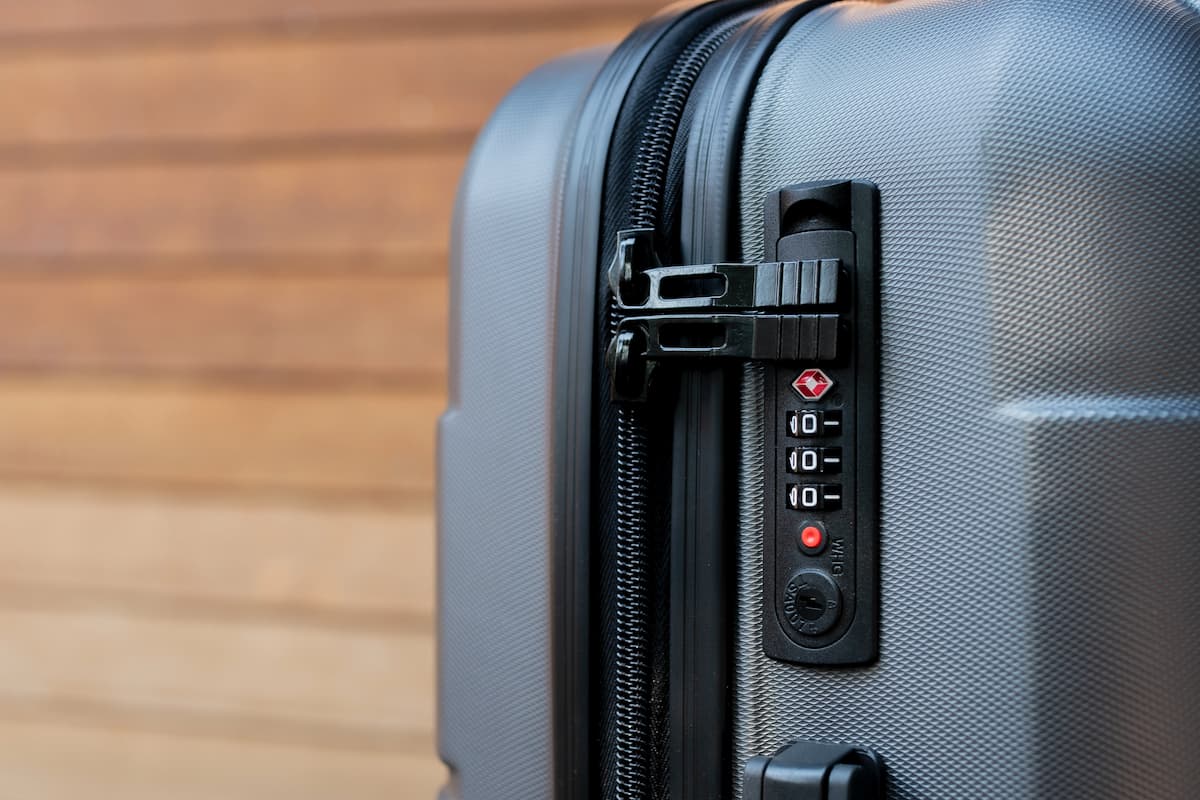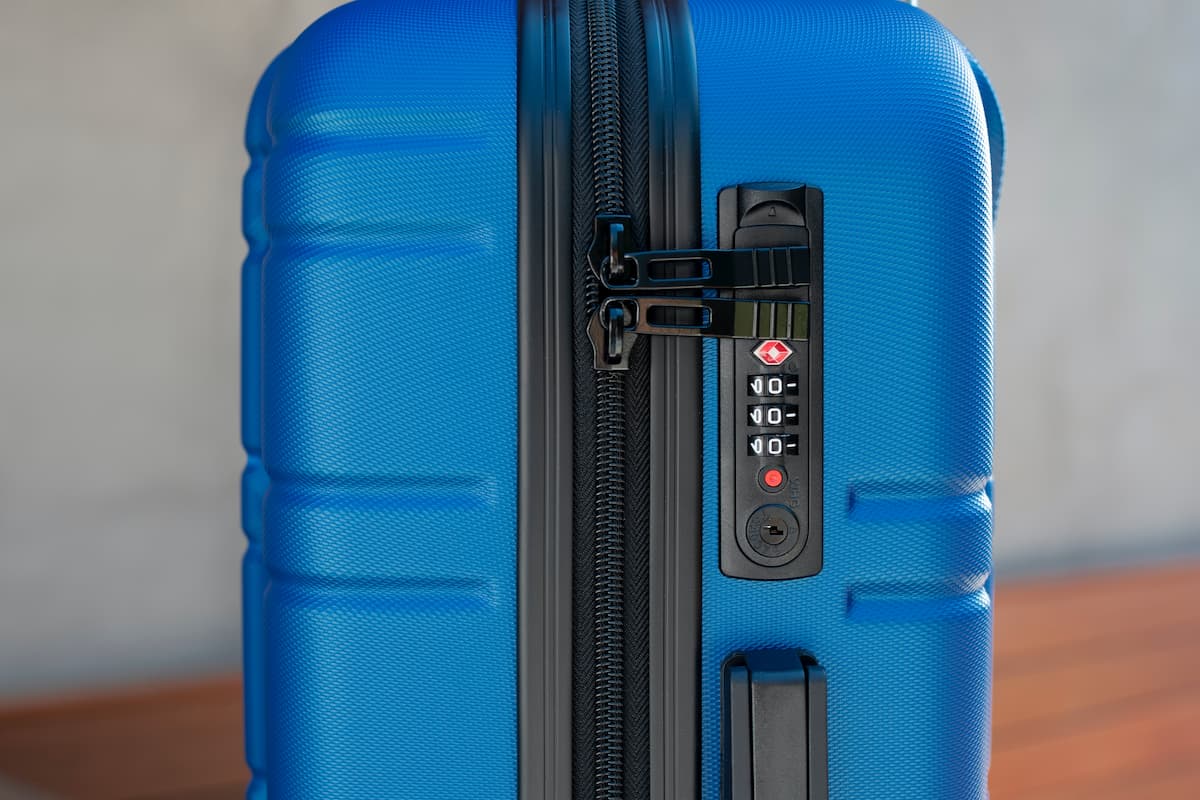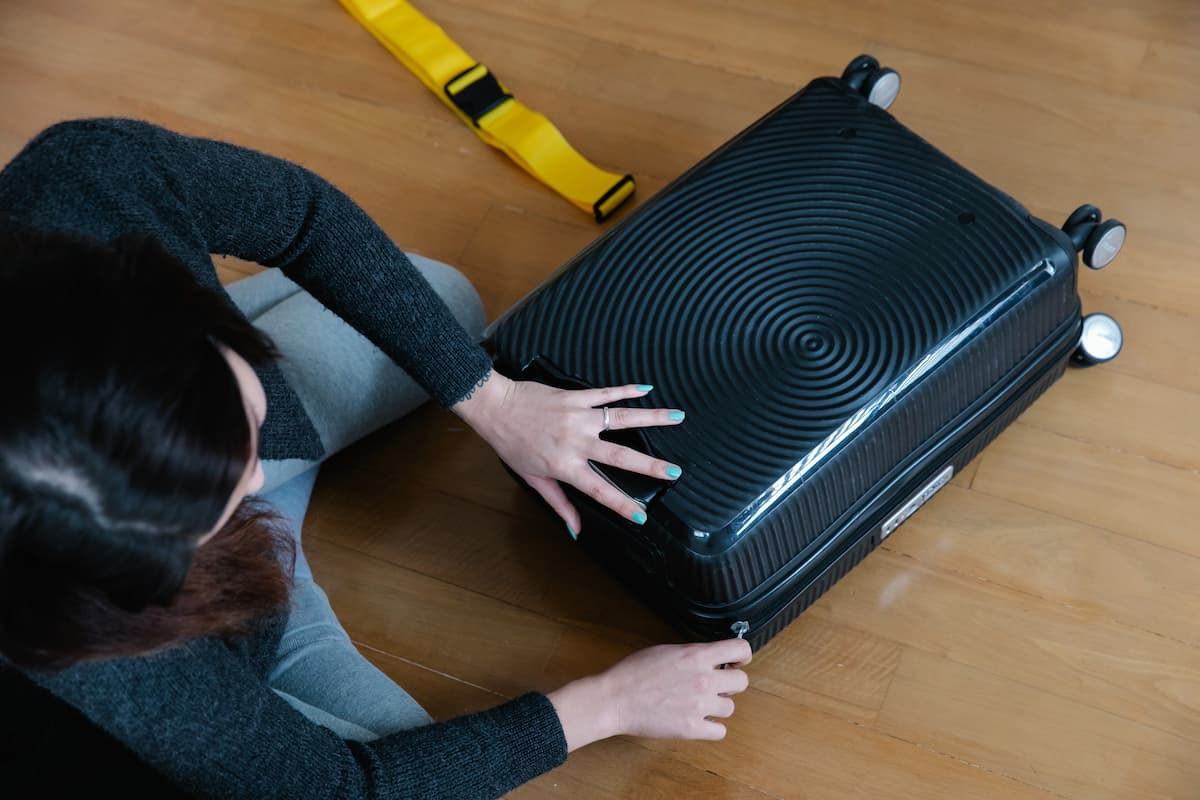Should I Lock My Luggage on International Flights?
Traveling with checked bags can be risky as there’s always a chance your luggage could be lost, damaged, or stolen.
While you can’t control how the airline treats your belongings, you can try to defend yourself against theft using an air tag and/or a good old-fashioned TSA lock.
Whether you fly domestically or internationally, locking your suitcase is never a bad idea. That said, ensure you use a TSA-approved lock; otherwise, airport security may cut it off. Typically, TSA locks have red diamonds, indicating international security agencies can open them.
The following discusses TSA locks and the rules for using them when you fly.
Can You Lock Your Luggage When Traveling?

There is no rule in the United States preventing passengers from locking their checked bags, especially if they use a TSA lock.
That said, some international airports may have different rules.
When you drop off your bag at the check-in desk, the airline should inform you if it’s ok to lock your luggage.
If you are permitted to lock your bag, and security wants to inspect your stuff, they’ll either have a master key or will simply cut off the lock.
Read Also >> Checked Baggage vs. Carry-On: Which Should You Choose?
What Type of Lock Should You Use When Traveling?
To avoid having your lock removed, you should use a TSA lock when traveling.
Despite their name, TSA locks are recognized by international security agencies worldwide.
Over 500 companies make TSA-approved locks, and they come in various styles, including combination locks, keyed padlocks, and built-in suitcase locks.
How Do You Know if a Lock is TSA-Approved?

You’ll know a lock is TSA-approved if it has a red diamond, which indicates the lock maker uses the Travel Sentry system.
Travel Sentry created the locking mechanism that allows the TSA and other security agencies to open and re-fasten luggage locks using special codes or tools.
They license their technology to many different lock companies, and every Travel Sentry lock is marked from TSA001 to TSA008.
These TSA codes tell airport security agencies which tool they need to open the lock.
Airports across the United States, Canada, Europe, Asia, and the Middle East all have Travel Sentry master keys capable of opening their locks.
How Safe Is a TSA Lock?
TSA locks are as safe as any other. The only difference is that a TSA-approved lock has a unique hole that only a Travel Sentry master key can open.
The sole purpose of the Travel Sentry system is that airport security doesn’t have to break a TSA lock to access the contents of a bag.
However, if you’re traveling through an airport that doesn’t have a master key, security will cut off your lock if they need to inspect your bag.
Read Also >> Which Items Do You Have to Remove at Airport Security?
What Can You Use Instead of a TSA Lock?

If you don’t have or want to use a lock, you can use zip ties, plastic cables, or even string to secure your bag.
Airport security can easily cut these fasteners if your suitcase needs extra screening.
However, as anyone can remove these items without much effort, they aren’t as safe as a TSA lock.
Alternatively, some travelers wrap their bags in plastic before checking them.
You can pay for this service at kiosks in select airports, and the plastic wrap will keep your bag secure and protect it from damage.
Should You Lock Your Bags at a Hotel?
If you’re concerned about your belongings, you can absolutely lock your bags while staying at a hotel, especially if your room doesn’t have a safe.
As an added layer of security, you can also put the Do Not Disturb sign on your door to keep housekeeping and other staff from entering when you’re not there.
When traveling with expensive items, like laptops or jewelry, you can usually take them to the front desk and ask the staff to put them in the hotel safe.
If you’re staying in a hostel or other shared space, you may have to get creative to properly secure your stuff.
Hostels often provide lockers for their guests; however, it’s a good idea to lock your suitcase before putting it in a locker and take anything expensive or valuable with you when leaving the property.
Final Thoughts
It’s a fairly common practice for travelers to lock their luggage, especially when checking their bags on flights or using any form of public transportation.
When traveling by air, it’s best to use a TSA-approved lock; otherwise, airport security will cut off the lock if they need to inspect your bag.
TSA locks are marked with red diamonds, indicating they’re made with Travel Sentry technology.
Travel Sentry is an internationally-recognized travel security company that produces the master keys for TSA locks.
If you don’t have a TSA lock, you can use zip ties, cables, or string to secure your luggage; however, airport security may also remove these fasteners if they need to check inside.